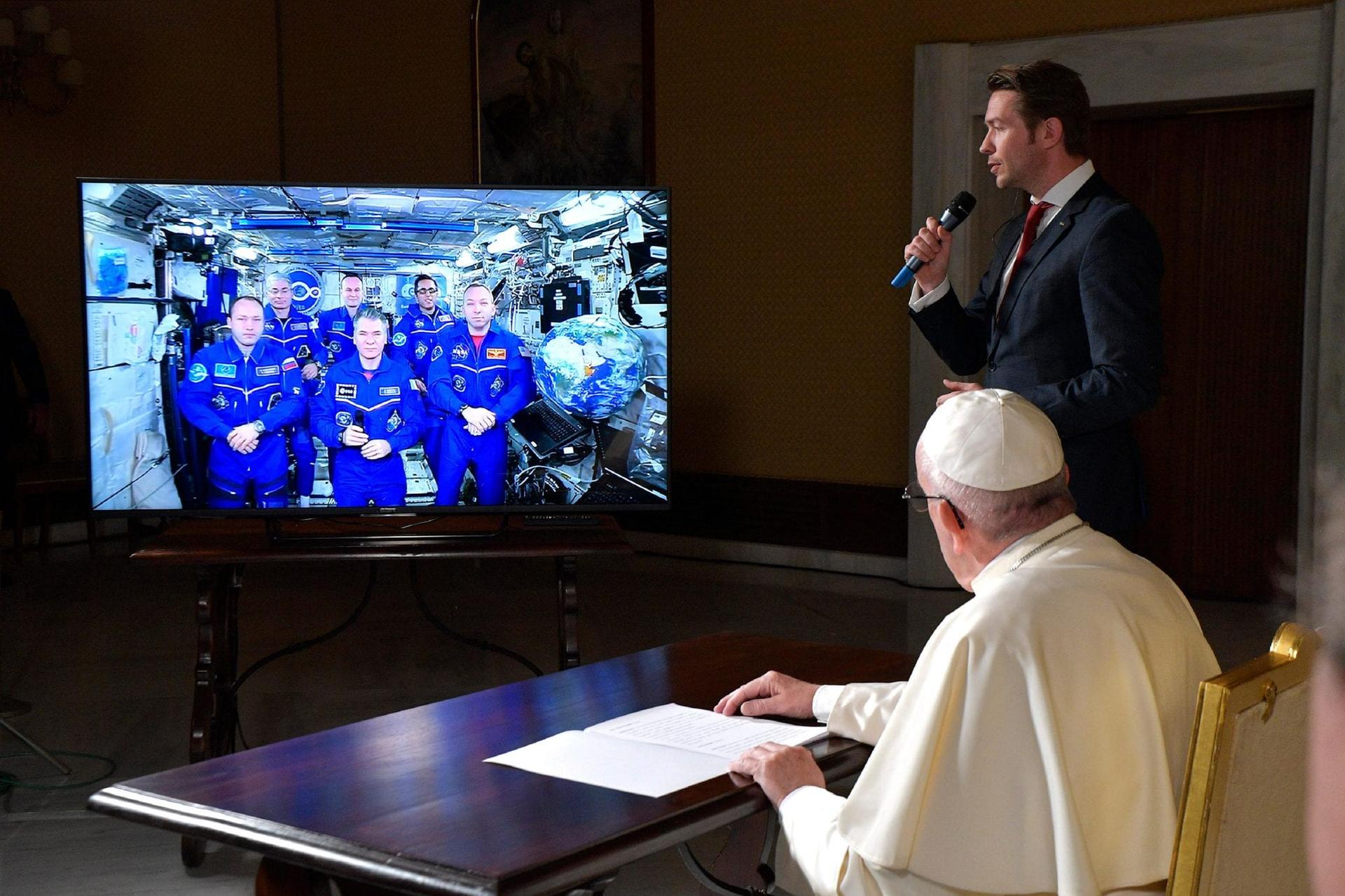Pope Francis is used to receiving invitations to different countries, but on Thursday he received his first invitation to visit space – in particular, the International Space Station.
The invitation came from Italian astronaut, Paolo Nespoli, during a half-hour conversation with the pontiff and the six astronauts currently on the station.
Nespoli was one of the people on the space station in 2011 when Pope Benedict XVI became the first pope to speak to astronauts in space.
In a change from the usual format of a papal interview, Francis asked the astronauts a series of questions about their experiences, and their thoughts regarding the place of man in the universe.
“I think our objective here is that of knowing our being, and to fill our knowledge to understand what is around us. On the other hand, the more we know, the more we realize how little we know,” Nespoli said. “I would like people such as yourself – not only engineers, not only physicists – but theologians and poets, writers, philosophers could also come into space – this is what the future will allow – I would like to see you here to explore what it means to have a human being in space.”
RELATED: A history of popes and spacefarers
Nespoli is currently serving with Americans Randolph Bresnik, Mark T. Vande Hei, and Joseph Acabaand; and Russians Sergey Ryazanskiy and Alexander Misurkin.
“Russians have in your blood strong humanistic and religious qualities. This is a beautiful thing, and I thank you for it,” Francis told Misurkin, after the cosmonaut told the pontiff what he learned about love from reading The Little Prince, the French classic by Antoine de Saint-Exupéry about a young traveler from outer space visiting earth.
“Love is the force which gives you the capacity to give your life for someone else,” Misurkin told the pontiff.
“Without love it is not possible to give your life for someone else. That is true. I see you have understood an important concept, in a poetic manner,” the pope said.
Bresnik, commander of the mission, told Francis being in space gave him an opportunity to see “God’s creation maybe a little bit from His perspective.
“People cannot come up here and see the indescribable beauty of our earth and not be touched in their souls,” Bresnik said.
“As we see the peace and serenity of our planet as it goes around at 10 kilometers a second – and there’s no borders, there’s no conflict, it’s just peaceful. And you see the thinness of the atmosphere, it makes you realize how fragile our existence here is,” he said.
Acaba said the space station was “a great example” of international collaboration, bringing together people from the United States, Russia, Canada, Japan, and the nations represented by the European Space Agency.
“What I find very interesting is the individuals that make up this collaboration. It is our diversity that makes us stronger and I think we need to embrace who we are as individuals and respect those around us and by working together we can do things much greater than we can do as individuals,” Acaba said.
Francis told the astronauts that the totality of the International Space Station – which he called a “little glass palace” – is greater than the sum of its parts, and thanked the astronauts for their work.
“Thank you, my friends. I would like to say brothers,” he said, saying they represented the human family.
The astronauts are conducting experiments involving cosmic ray particles, the manufacture of fiber optic filaments in microgravity, therapies to improve muscle atrophy, and investigating the abilities of a new drug to accelerate bone repair.
One of the Americans, Mark Vande Hei, spoke to Catholic News Service last year about his Catholic faith, saying, “I pray the rosary while walking the dog.”
Cardinal Daniel DiNardo, archbishop of Galveston-Houston, led a contingent of Catholics gathered at NASA’s Mission Control in Houston for the long-distance chat.
Fresh from the space station, U.S. astronaut Jack Fischer said his faith grew while he was in orbit. He invited his priest to his Houston homecoming last month, after landing in a Russian capsule on the other side of the world.
“You look out the window and you can’t help but feel that we’re just one small part of a bigger whole,” Fischer said. “Just seeing this mind-blowing beauty of the universe, it grows your faith in ways that it’s hard to even describe.”
This article incorporated material from the Associated Press.













